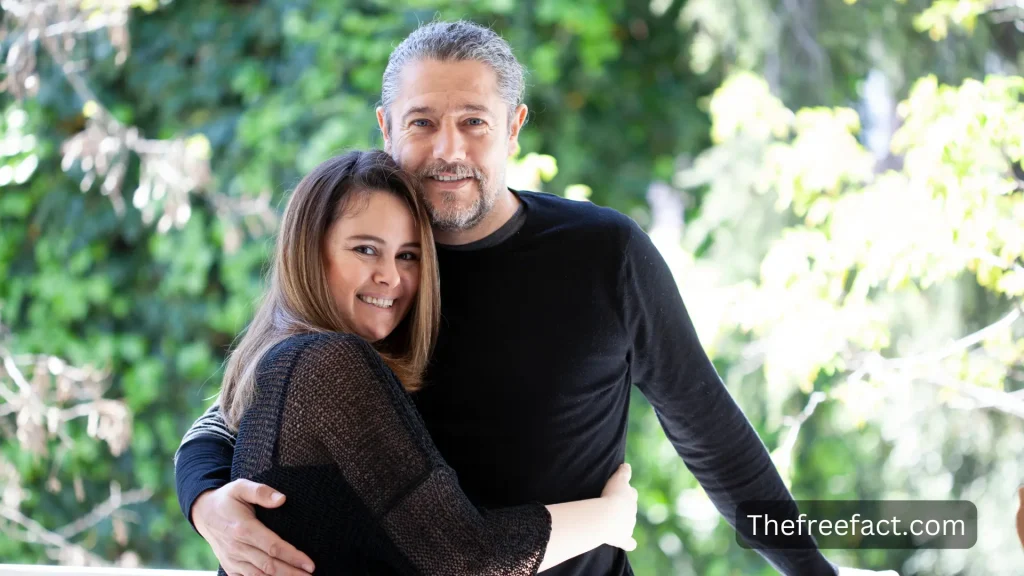When a husband dies does the wife get his social security disability?
Getting your financial affairs in order is often pushed aside by many new priorities, including honoring a spouse’s memory, finding support networks, and working on your own healing.
It can be difficult to figure out benefits like Social Security. Do you get your spouse’s Social Security if he or she dies? Depending on your situation, survivor benefits can be important to your long-term financial plan. Here are some details about what benefits you may be eligible for and how to apply.

When a husband dies does the wife get his social security disability?
SSDI benefits are converted into retirement benefits when your spouse reaches full retirement age and has a medical condition that meets the Social Security framework of disability.
When your spouse dies, you may continue to receive his or her Social Security disability. If you already receive SSDI based on your own disability, then you could apply for survivor benefits. Social Security will determine if you would receive a higher benefit as a widow or widower. SSI is sometimes confused with SSDI, but survivor benefits aren’t offered.
When your spouse dies, it is important to notify Social Security right away. Typically, you do not do this yourself. Instead, you give the funeral home your spouse’s Social Security number and ask them to do this on your behalf. You can call your local Social Security office if you need to report a death or apply for benefits yourself.
It may not be necessary for you to apply for survivor benefits in some cases. Once Social Security receives the death notification, they change the benefit type to survivor benefits. You may also qualify for a special lump-sum death payment.
In the event that you were already receiving SSDI benefits on your own record, you will need to apply for survivor’s benefits.
The amount of Social Security disability benefits may be reduced or eliminated when a spouse passes away. Here are some examples of when benefit amounts may be reduced or eliminated:
- You are not eligible for benefits if you were married less than nine months. Fortunately, there are many exceptions to this rule, such as if your spouse was murdered.
- Working while collecting survivors’ benefits may result in Social Security reducing your monthly benefits based on your age and your income.
Also check: When Will Social Security Run Out?
Social Security survivor benefits are available to who?
Families who have lost a loved one to death may be eligible for Social Security survivor benefits if they meet these requirements:
1. Spouse
- You’re 60 or older, or 50 or older and disabled (disability must have started within 7 years of your spouse’s death).
- You’re caring for a child under 16, or with a disability, who was your spouse’s child.
You must have been married for at least 9 months before your spouse’s death, unless:
- The death was accidental.
- Your spouse died while serving in the military.
You won’t lose your survivor benefits if you remarry after age 60 (or 50 if you’re disabled); however, if you remarry before 60, you will lose them (unless the new marriage ends).
Ex-spouses may also qualify if:
- You were married for at least 10 years.
- You’re not remarried.
2. Children
- Your child may qualify if they are under 18, or 18-19 and still in school (K-12).
- If your child became disabled before age 22, they may qualify at any age.
There are some cases in which stepchildren, grandchildren, and step-grandchildren may qualify as well.
3. Adult Children with Disabilities
- If your adult child was disabled before age 22, they may qualify for benefits if you pass away.
4. Parents
- If you are 62 or older and were financially supported by your child who has passed away, you may qualify for benefits.
Key Points:
- You may be eligible for survivor benefits if you were married for 9 months (or less in certain cases).
- Survivor benefits are lost if you remarry before 60 (or 50 if disabled). They are not affected if you remarry after 60.
It is possible for divorced spouses, stepchildren, and others to qualify for survivor benefits through the Social Security Administration (SSA).
What is the surviving spouse’s Social Security benefit?
A surviving spouse’s benefit depends on two factors: the age of the deceased and the age of the surviving spouse. You may also qualify for Medicare based on their work history if you’re 65 or older or have a disability or end-stage renal disease.
Find out how much your benefits will be
If you don’t know the Social Security number, you’ll be asked for other information, such as the date of birth and parents’ names of your deceased family member. Available in English, Spanish, and other languages, Monday through Friday, 8 a.m. to 7 p.m. in most U.S. time zones.
- Call +1 800-772-1213
- Call TTY +1 800-325-0778
Spouses and ex-spouses
Your payments begin at 71.5% of your spouse’s benefit and increase over time.
Here are some examples:
- At age 61, more than 75%.
- A whopping 80% by the age of 63.
- At age 65, the percentage is over 90%.
When you reach your “Full Retirement Age for Survivor Benefits”, you can receive up to 100% (between ages 66 and 67).
Children
We may lower everyone’s payments to stay under the family maximum. Ex-spouses don’t count toward the family maximum. Children generally get 75% of their parents’ benefits.
Survivor and other benefits
You can choose which payment is best for you if you’re eligible for both Survivor and another benefit. You can switch benefits at any time. For example, if you start with Survivor benefits at age 70, you can switch to Retirement when the payment is the highest.
Lump-sum death payment
A one-time death benefit payment of $255 could also be made to a spouse or minor child.
Social Security retirement benefits and the age of a deceased spouse
Survivors of a deceased spouse receive a percentage of the deceased’s retirement benefits, based on the deceased’s age:
- Survivors can receive 100% of the retirement benefit if the deceased did not reach full retirement age.
- Surviving spouses can receive the deceased’s retirement benefits in the month they passed away, if the deceased reached retirement age.
- The surviving spouse is also entitled to the deceased’s monthly payments if they had received them in the month before their death.
How Social Security retirement benefits are affected by the age of a surviving spouse
- If you are the surviving spouse of the deceased, you will receive 100% of the deceased’s benefits when you reach full retirement age.
- Depending on your age, you may be entitled to a reduced benefit (7112% to 99%) if you’re younger than full retirement age.
You may be caring for others while you are still grieving, and this can be a complicated time for you as well as your spouse’s other loved ones. It is possible to receive 75% of the deceased’s benefits if you care for the deceased’s child (under 16 or disabled).
You may be close to reaching the family maximum benefit if several family members qualify for benefits. Your benefits may be reduced even further if you are still working while you haven’t reached retirement age. If you are under full retirement age, the Social Security earnings limit for 2024 is $22,320.
What is the Social Security lump sum death benefit?
A surviving spouse’s death benefit is a lump sum payment of $255 that is paid to the surviving spouse in addition to the monthly payment. You must have lived with the deceased at the time of their death in order to qualify for the death benefit. If you already receive spousal benefits, you might still qualify for the death benefit if you lived apart when your spouse died.
For an initial estimate of your monthly benefit, use a benefits calculator. Survivor benefits are usually paid for life.
Do you get both Social Security benefits if your spouse dies?
Social Security only pays one-survivor or retirement-benefits. If you qualify for both survivor and retirement benefits, you will receive the higher amount. You cannot claim your deceased spouse’s benefits in addition to your own retirement benefits. You cannot apply for survivor benefits if they are less than your retirement benefits if you already receive retirement benefits.
In some cases, it is in your best interests to delay applying for retirement, so those benefits can grow while you receive survivor benefits. However, every situation is unique. It is possible to get guidance on which benefits to apply for and when from your local Thrivent financial advisor.
What are the steps to applying for survivor benefits?
Upon receiving proof of death, the Social Security Administration will automatically switch you to survivor benefits; otherwise, you will have to apply.
The SSA does not accept online applications because determining eligibility and the benefit amount is complicated. You can call the SSA or schedule an appointment in person.
When you apply, the SSA may request several documents. Here are a few examples:
- A death certificate or a funeral home’s proof of death
- The Social Security numbers of you and your deceased spouse
- Certificate of marriage
- The most recent tax return or W2 from your late spouse
- Direct deposit information if setting up







